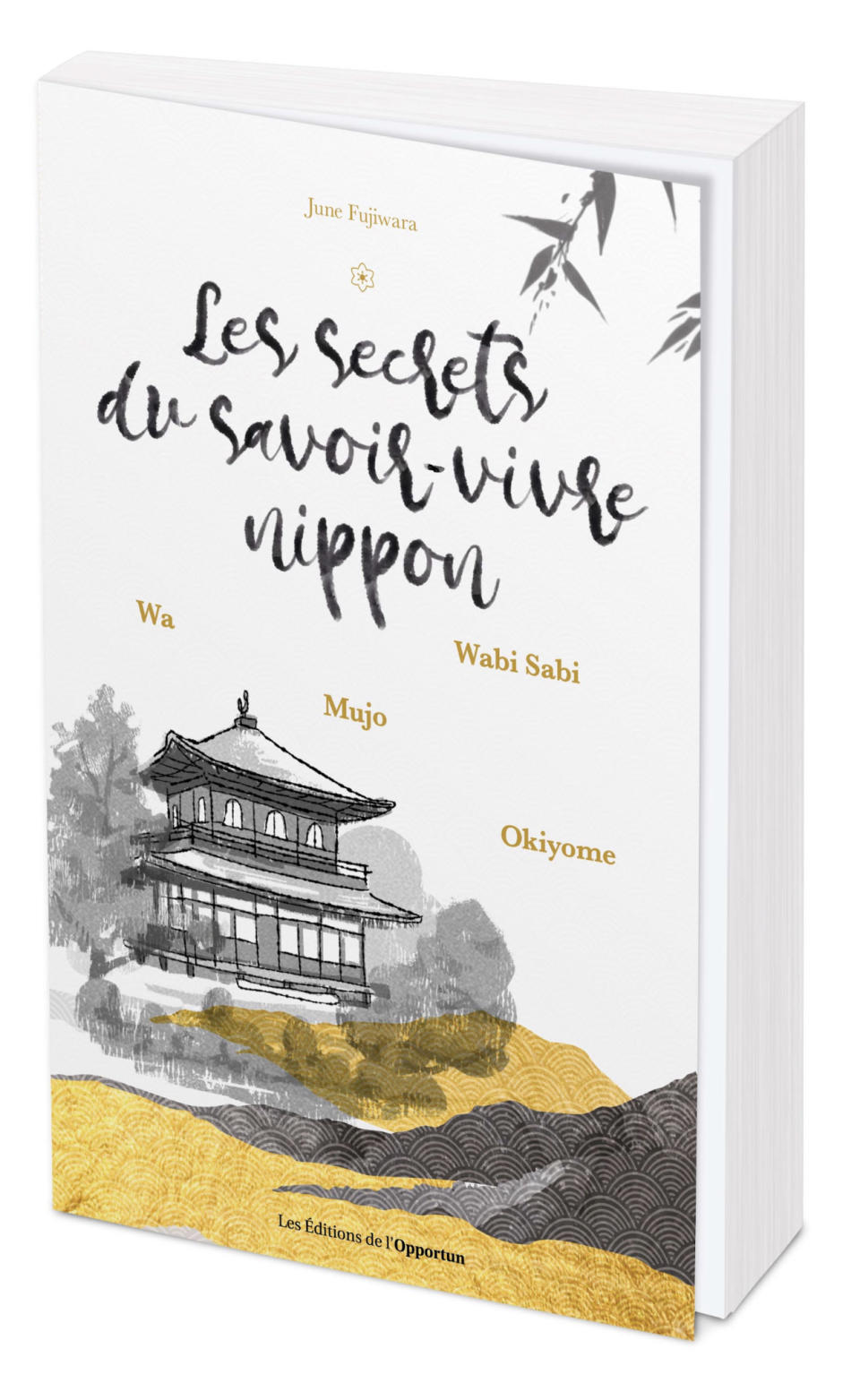A Former Louis Vuitton P.R. Has Some Tips on How to Stay Zen in 2022

PARIS — During her 17 years in public relations at Louis Vuitton in Paris, June Fujiwara was often asked the same question: “Why are you so Zen?” Though born in Japan, she has never practiced meditation and found the inquiry confusing, since she associates the word “Zen” with a branch of Buddhism, rather than a state of mind.
“I didn’t find myself particularly stressless, or calm, or whatever, so I really didn’t understand that question. Until when the world stopped, and I realized that maybe I do have a different way of coping with things. And it took me a time to realize that, because I think it’s like asking a fish, ‘Why do you swim so well against the tide?’” Fujiwara says.
More from WWD
As work ground to a halt during the first lockdown in March 2020 at the onset of the coronavirus pandemic, she began to reflect on her identity and cultural values. That period of introspection coincided with her leaving her job and realizing her long-held dream of writing a book in French.
“Les secrets du savoir-faire nippon” (“The Secrets of the Japanese Way of Life”), published by Les éditions de l’Opportun, is her attempt to explain the fundamental concepts of Japanese thinking, and how it might help people navigate chaotic times. While tidying does play a role, this is no Marie Kondo manual.
Rather, Fujiwara extols the benefits of slowing down and focuses on the four concepts that are most meaningful to her: mujō, or the notion of impermanence; wa, or harmony; wabi-sabi, the acceptance of transience and imperfection, and okiyome, a ritual of purification.
“I knew it had to come from inside and be quite personal and authentic,” she explains. “I think what basically made you is what stays in you, right? So I think that never changed in me, but I wasn’t conscious of it at all.” Penning her first book was all about going back to essentials.
“I’d say the two notions of impermanence and wabi-sabi, they’re commonly known and spoken of in Japan as founding cultural or aesthetic values. The harmony, the wa, has never been conceptualized. But it’s a word that we use to speak of everything Japanese,” she says.
“I hesitated, but I thought that if I don’t explain this concept and how the Japanese live together without asserting their individuality, there were a lot of things I couldn’t explain,” Fujiwara adds.
It turns out that wa, which implies putting communal harmony ahead of personal interests, is nigh-on incomprehensible to the French. After all, this is a country where a 50-day transport strike in 2019 was met with little more than a Gallic shrug.
“France has this history and culture of liberty as sacred. Not at all in Japan. And people don’t really get this part. So that’s why they would go like, ‘Oh, the Japanese are too timid. They don’t have any opinions,’” Fujiwara says. “And I always hated this image, because it’s so not true. But the way of living together is absolutely the opposite in France and Japan.”
The final notion, purification, is also something that’s more or less taken for granted in Japan. “It’s something people naturally do, so some Japanese, I think, would be surprised that I put that in at the same level as wabi-sabi,” she says.
“Of course, we’re not monks, so everybody is stressed, tired and angry, and how do we cope with this? And I feel in Japan, we do have ways to reboot yourself, which comes from this tradition of purifying your spirit, your body, which explains also a lot of things about why we’re so obsessed about tidying up and cleanliness,” she adds.
The New Year is a prime example. In order to start the year with a clean slate, Japanese people usually do a big home clean, known as osouji. “I think it’s a good time to also reset your mind, so I’m kind of for New Year’s resolutions,” says Fujiwara. “I do like this freshness of feeling. You kind of take a step back and say, OK, what can I do better?”

Courtesy of Les éditions de l'Opportun
But don’t look to her for motivational quotes or tips on how to achieve mindfulness.
“I’m not very comfortable with that word, because I’m not sure exactly what that means. The only thing maybe I can say is it’s all about trying to have some time, a little bit of time in your daily life or weekly life, to just try to be yourself, because normally we don’t have that time, and we have several roles to play,” she says.
“We’re the perfect colleague, we’re the perfect parent, we’re the perfect lover, or whatever, and it’s like having this refreshing moment when you feel like you’re a child again, and you’re just amazed in a forest, seeing things, or picking up stones and thinking they are treasure,” she continues.
“We’re spending our lives working, on Amazon at the same time and Deliveroo-ing your dinner at the same time, and doing this and that, and we’re proud of ourselves, because we have it all, and we have an amazing life, and we’re lucky enough to have a job, and it goes on and on. And yet, I think that’s why most people sometimes feel exhausted,” Fujiwara muses. “Basically, that was me for 17 years.”
She thinks this mental fatigue is the reason why many people fantasize about moving to the countryside — though she believes that’s not the solution. Neither does she buy into a lifestyle overhaul.
“I don’t like these method books and manuals which push you to change. I think it’s all about just trying to reach inside, what’s most precious inside you. It’s all there, but we’ve somehow accumulated all this stuff, and it’s so hard to reach your self,” she explains.
“When I wrote this book, I understood that that thinking might come from the Japanese tradition of thinking that basically your soul is pure, and it’s there, and that’s why there’s a lot of purifying techniques in Japan,” she adds.
The book suggests savoring the little things.
“The secrets of the Japanese way of life lie in small daily gestures such as enjoying the sunset, cherishing the moments spent with loved ones, savoring seasonal dishes, anticipating the needs of your guests to please them, taking a moment to clear your mind, relaxing in a warm bath, or tidying your house to clarify your ideas,” she writes.
Fujiwara has learned to make space in her day for simply being herself. “I tell my daughter it’s my ‘me, myself and I’ time,” she says. “It could be as silly as going on Netflix and watching something which everybody hates, but you just love, or taking care of your flowers. I have little snails in my house.”
While understandably nervous about leaving her job last June, she’s been pleasantly surprised by the response to her new endeavor, even beyond the fashion community. “It’s very weird because it’s like jumping off a cliff,” she says. “I knew if I didn’t do it now, I will never do it. So it was this kind of, I’m in my mid-40s, now-is-the-moment kind of feeling. Now or never, and if it doesn’t work, OK, it doesn’t work.”
She’s been asked to moderate panels for the Franco-Japanese Exchange Committee, which fosters trade relations between France and Japan, and is open to other ventures. “I do want to expand a little bit. Maybe it’ll be doing some podcasts with people,” she says. “I’ve really met a lot of French who are more Japanese than me in some ways.”
Fujiwara already has an idea for her next book, and wants to write in English as well.
“Never say never, but I don’t think I’ll go back working in a corporate environment,” she says, explaining that the COVID-19 pandemic changed her outlook. “It felt so weird. Stressful, of course, in the sense that it was a sanitary crisis, but at the same time, it made me really feel that there’s another, different way to cope with time, and trying to live the present rather than working, working all the time for the future.”
She’s even contemplating meditation.
“I’m sure it’s a good path to take care of your body and your mind, and breathing — when you think of it — is really good for your body, so I might give it a try,” she says with a laugh. “But on the other hand, if you do that, but you haven’t worked on what’s inside there, it’s like going on a four-week vacation to the Bahamas, and being stressed and jealous. It doesn’t change that much.”
SEE ALSO:
Veteran PR and Gossip Columnist Rob Shuter Releases Self-help Book
Wellness Watch: How Technology Is Impacting Wellness
Stella McCartney, Liv Tyler Promote the Power of Meditation
Best of WWD
Sign up for WWD's Newsletter. For the latest news, follow us on Twitter, Facebook, and Instagram.